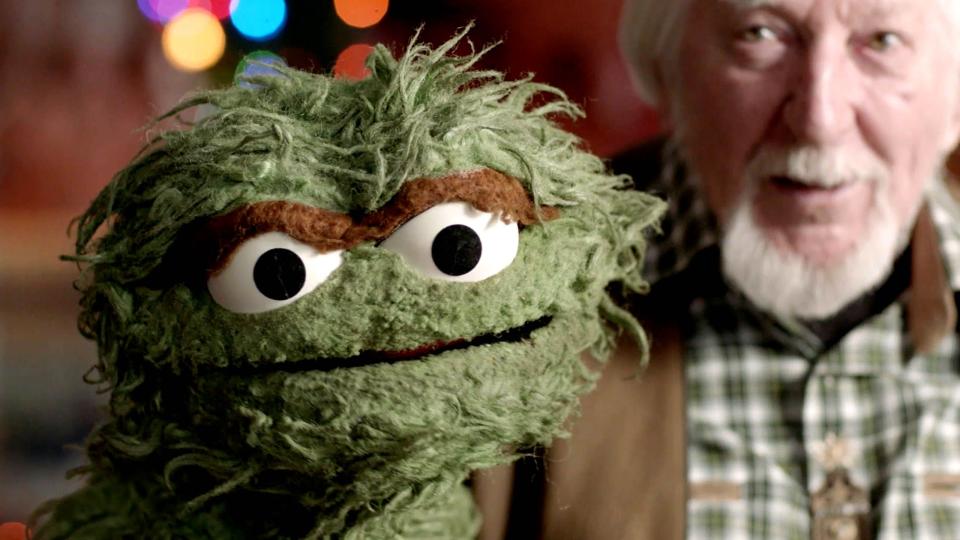How the documentary 'Street Gang' tells 'vast story' of influential 'Sesame Street'
“Sesame Street” didn’t start with Big Bird, Bert and Ernie. It started with Joan, Jon and Jim.
Directed by Marilyn Agrelo, the documentary “Street Gang: How We Got to Sesame Street” (in theaters, on video-on-demand platforms Friday) – which premiered at the virtual Sundance Film Festival in January – offers a comprehensive look at the origins of the influential children’s educational program (now heading into its 52nd season) beginning with TV executive Joan Ganz Cooney, writer and director Jon Stone and puppeteer Jim Henson in the late 1960s, how it became a cultural phenomenon, and its steadfast commitment to inspiration and inclusion.
Sundance Film Festival: All the best movies we saw, ranked (including folk horror 'In the Earth')
'Black Woodstock': Questlove takes us to forgotten event in joyous concert doc 'Summer of Soul'
The show “was so intentional and purposeful,” producer Ellen Crafts said in a Sundance Q&A earlier this year. “The creators of ‘Sesame Street’ were doing something in response to the civil rights movement and the disparity in education among children of color.” The longtime program showed “how creativity and education can combine together to make change in the world.”
Making “Street Gang,” based on the Michael Davis book of the same name, was an opportunity for Agrelo (“Mad Hot Ballroom”) to “tell a story that people think they know so well. I was really hopeful to tell the adult story of 'Sesame Street,' the struggles and the dreams of these people who came together.
“We don’t think of ‘Sesame Street’ at all as political or earth-moving but it really was.”
Sundance: 'On the Count of Three' is the Jerrod Carmichael bromance drama you're not expecting
Marlee Matlin: 'CODA' star Marlee Matlin talks inclusion, calls on Hollywood to 'hire more deaf actors'

The documentary shows a bunch of the famous names who stopped by to see Oscar the Grouch, Grover and the rest of Henson’s Muppets crew, from James Earl Jones and Stevie Wonder to Johnny Cash and Paul Simon. With behind-the-scenes footage, “Street Gang” lets audiences take a peek at the puppeteering comedy team of Henson and Frank Oz, but also digs into how it explained the death of Mr. Hooper to kids after actor Will Lee had a fatal heart attack in 1982 and even deals with the workaholic sensibilities and mental health struggles of the “Street” creators.
“This is a vast, vast story with a huge cast of characters,” Agrelo said, so when making the documentary, she decided to focus on the first 20 years of the show. “The origin is the most groundbreaking, the most experimental period of ‘Sesame Street.’ By reducing the vastness of it, we were able to make it stronger.”
Making the movie opened “Sesame Street” in new ways for the filmmakers. Producer Lisa Diamond appreciated the very early decision to have the Muppets share the street on screen with their human neighbors when experts and educators initially argued that they shouldn’t mix fantasy and reality. Having them separate was “boring,” she said. “Jon’s like, ‘We’re going to put them together,’ and it was such a huge step.”

Agrelo didn’t really know that at the very beginning, “Sesame Street” was directly aimed at Black inner-city children ages 3 to 5. Ramifications came out of that, from public television stations in the South being resistant to the show's integrated cast to the rejection of Muppet character Roosevelt Franklin, created by actor/writer Matt Robinson to appeal specifically to Black kids, because of his vernacular. “It was the Black parents who didn’t want to be pigeonholed into that stereotype,” Agrelo said.
Producer Trevor Crafts just loves the multicultural aspects Stone wanted for the Street itself, where all races and ages and genders can live together in harmony with an 8-foot bird walking around. “That’s such an inspiring way to create a show for kids,” he said, “to show the world the way you want it to be so they have that implanted in their earliest memories, that this is the way we’re all supposed to be.”
Agrelo directed segments for recent seasons of “Sesame Street” and she affirms that the Sesame Workshop still does a lot of research on issues such as social justice and homelessness. “To elevate to a higher thinking, to always have teaching (and) humanity in mind, is very much there,” the filmmaker said. And watching Black Lives Matter marches and unrest in America in the past year “made me proud of this film because everything that was true in 1968 is true in 2021. We still have to open up our minds and our hearts, and this program is still very much a part of that.”
This article originally appeared on USA TODAY: 'Sesame Street': 'Street Gang' documentary chronicles show's origins

 Yahoo Finance
Yahoo Finance 